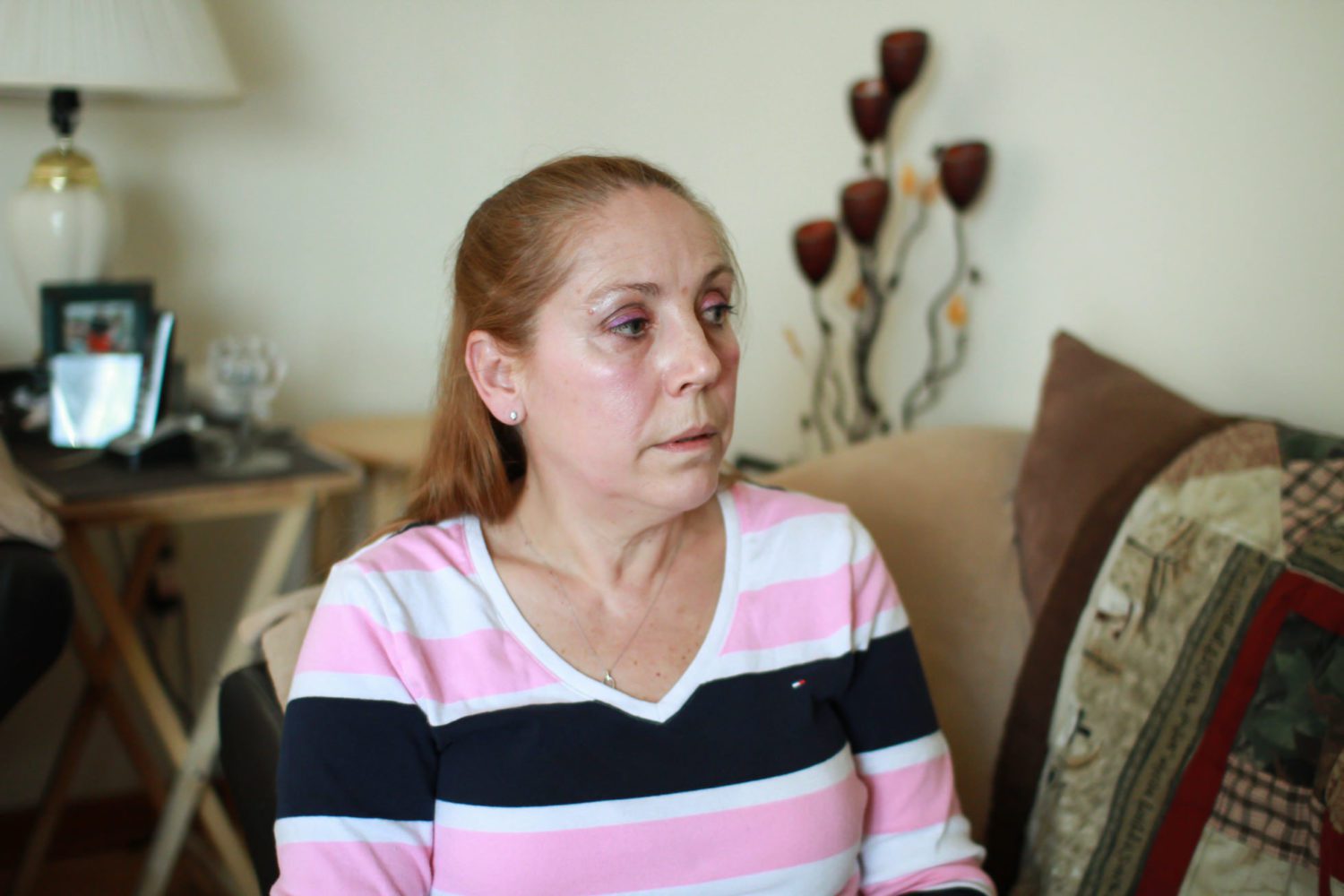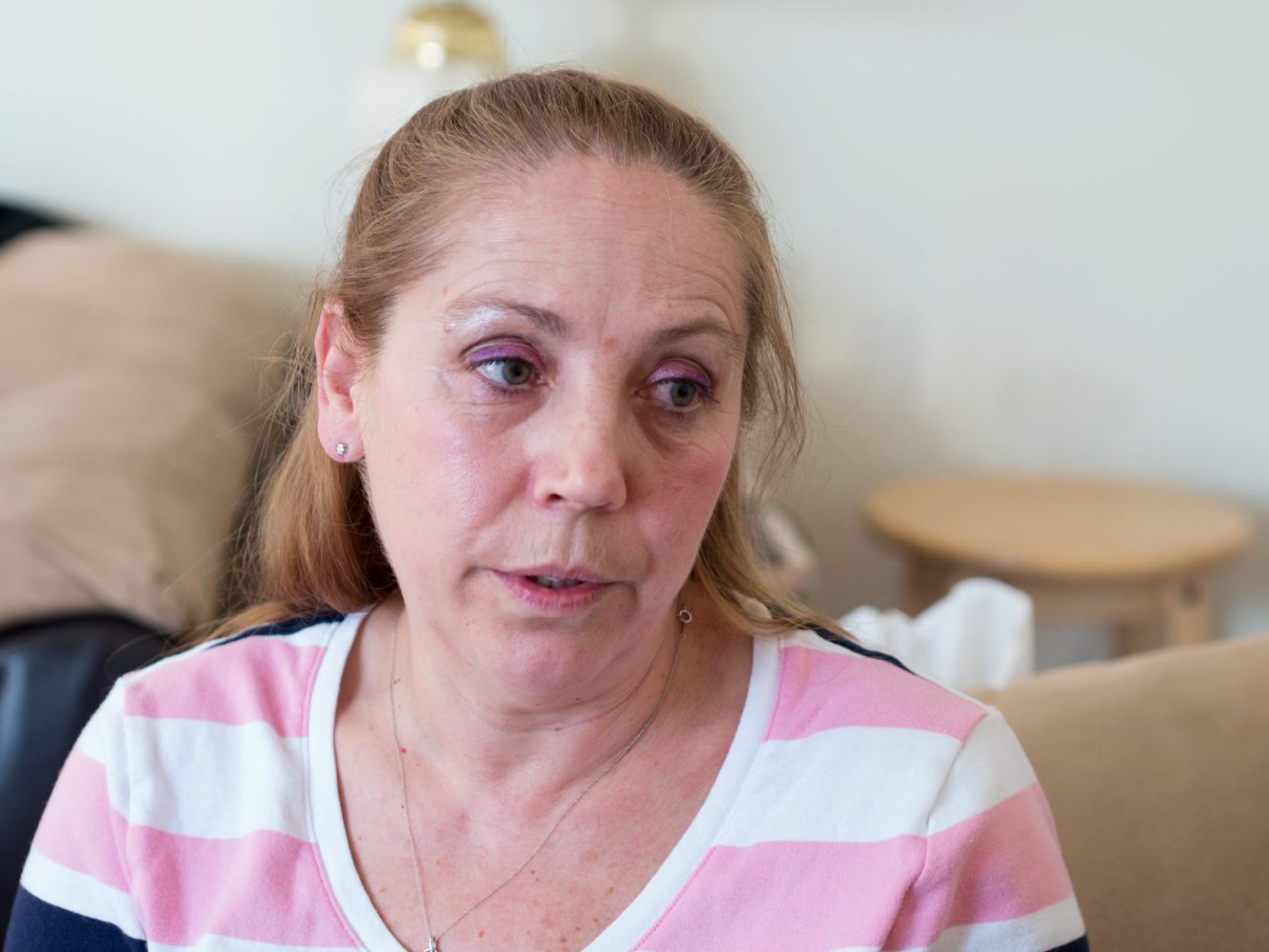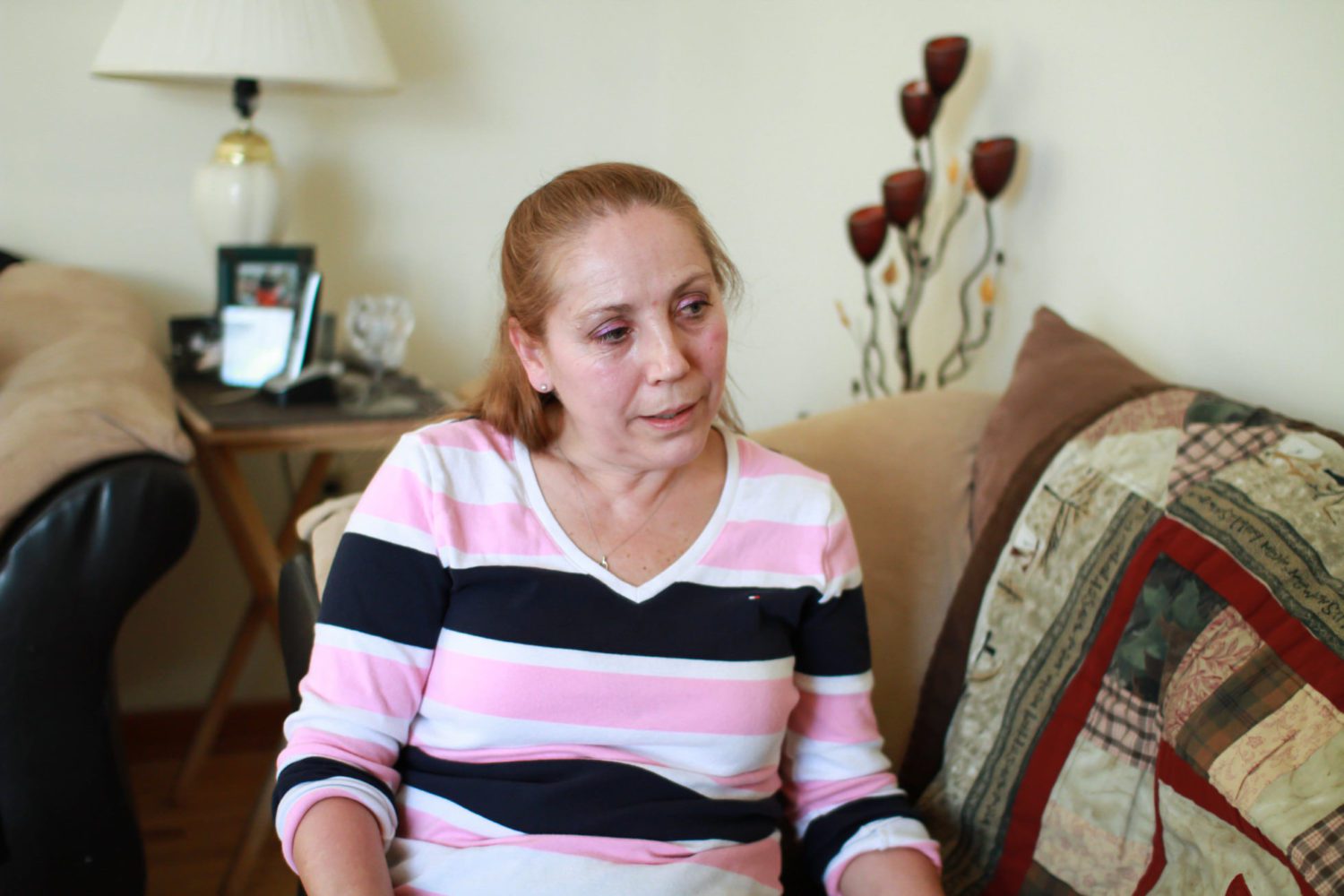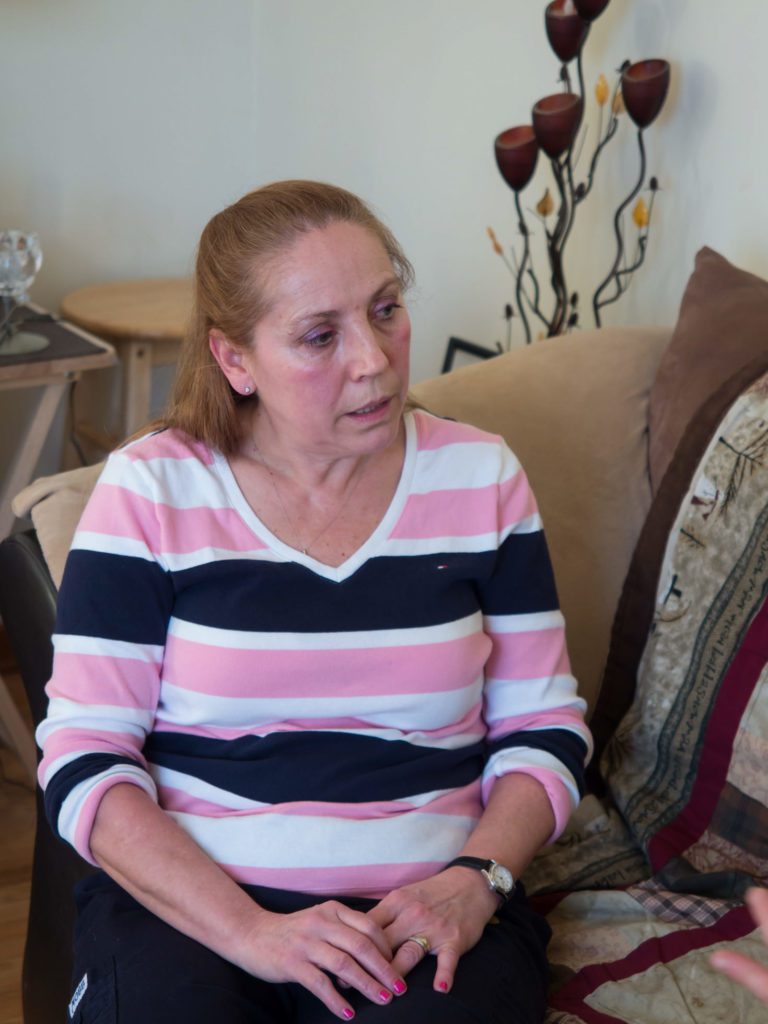As a porter who moves patients around a hospital, Louise has developed bonds with many of her patients, and has seen firsthand how financial pressures have affected care over the years.
“I have worked in this hospital for 16 years. I started off in nutrition services, where I did everything from catering to working on the belt line where we put people’s plates together. I have been a porter for the last five years.”
“I love portering. There isn’t anything that I don’t like about it. I love the interactions with patients.”
“When patients first come into the hospital, I often see them in emerg. And then, later in their stay, I might take them to chemotherapy or radiation. It’s great when I get to pick them up and take them to the main door because that means they are all done and they are going home!”

We sometimes have to deal with violence from patients.
“We’ve been working with our union and the hospital and the Ministry about this. A few years ago, mental health moved here and we noticed a big increase in staff coming to us about being hit. We have a lot of patients with dementia and some of them can get violent occasionally.”
“So we put a committee together that has implemented good things. Whenever there’s a code white, a violent incident, there is a meeting with everyone who was there and occupational health to discuss what could have been changed to prevent it or improve the response. And as soon as a patient has done something violent, an alert is put in place that warns staff that this person may have the potential to be violent again. We also have safe reporting in place. When you have an issue, there is a simple process to report it. It doesn’t have to be an injury, it can be anything, like someone has hit you, or you see a potential for a hazard. Management has 21 days to respond to that. We also have more security in places where there is a high risk of violence.”

“Have you noticed changes in the hospital over the years?”
“I think that staffing has gotten worse. It’s hard for the hospital administration because they have to cut costs.”
But people are stressed out because they are working, working, working. There’s no balance.
“I have heard people say that we might have to cut down the dialysis ginger ale budget. Dialysis patients probably depend on having that glass. It seems like we are making all sorts of little cuts. This seems to affect everyone – portering, environmental services, kitchen staff, nurses. Even the doctors are feeling the crunch. Every day some service is short staffed.”
“We talk about ‘patient-centered care’. Sometimes that seems kind of funny. Patient-centered care is for the patient, so that means having enough staff to look after the patient, and having all of the things that are needed. When you are cutting things, you are not looking after that patient.”
“I feel so bad for patients who have cancer. Day after day, I take them down to radiation. One lady was in so much pain, that she had to go in her bed; we couldn’t move her to a stretcher.”
“You just feel so bad that people have to go through this.”
I really enjoy picking people up when they are heading home.
“I always tell them, ‘I am so glad to see you are going home. I don’t want to see you come back. Now, don’t take that the wrong way!’”
“I also see people…I have to take people to the morgue, and that’s sad.”
“A lot of the dialysis patients and diabetic patients, I see them all the time, right? I get to know them. It’s sad when they’ve gone, because I’ve built a relationship with them over the years. There’s a gentlemen, his name is Robert. He is fun because when he sees me he says, ‘Hi! How are you doing?’ He’s always very friendly and loves the porters.”

“Some of the health workers don’t understand that things take time. When I go to get a patient, whether it is in a wheelchair or stretcher or bed, the nurse sometimes has to give the patient medication, or the patient has to go to the bathroom. They need to do what they need to do! Some people don’t understand that. They think that as soon as I get that call, I’ll be there with the patient five seconds later, pretty much. But, sometimes, it takes 20 minutes, because a doctor has to talk to the patient, the nurse has to get the medication and the patient has to go to the bathroom. But everybody wants their patient when they want their patient. I understand that because when you get delays, lots of other things are delayed. It’s kind of like a snowball effect. And when you don’t have enough staff, it’s a bigger snowball.”
“Sometimes, though, we get there early. Then we are told, ‘They told us you weren’t going to be here for 20 minutes!’ (Laughter) If you’re early, you’re in trouble; if you’re late, you’re in trouble!”



The comments section is closed.